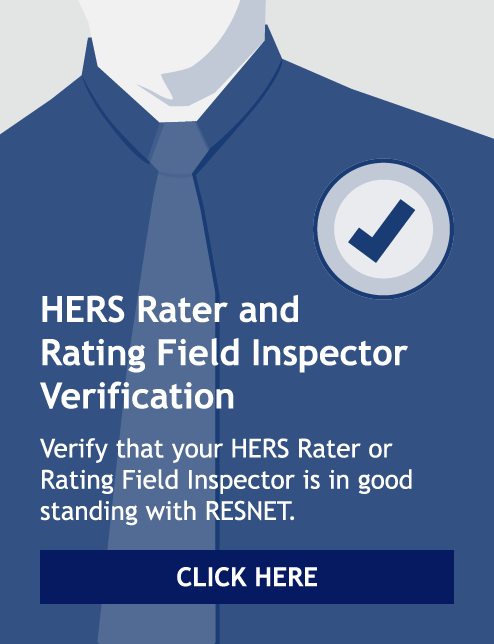Energy Rating FAQs

In order to understand how energy efficient a home really is, you have to get an energy rating. A certified RESNET Home Energy Rater will rate a home and based on its energy performance, assign it a HERS Index Score. This score, the housing industry’s version of MPG (miles-per-gallon) stickers found on new cars, gives consumers an idea of how that house compares to other similar homes in terms of energy efficiency.
A home energy rating is an analysis of a home’s energy efficiency; as per the Home Energy Rating System (HERS) Index. The HERS Index is the nationally recognized scoring system for measuring a home’s energy performance. Based on the results, an energy-rated home will receive a HERS Index Score. The HERS Index Score can be described as a sort of miles-per-gallon (MPG) sticker for houses, giving prospective buyers and homeowners an indication as to how the home ranks in terms of energy efficiency. In addition to a HERS Index Score, a home energy rating also provides the homeowner with a detailed report regarding energy problems in the house.
A comprehensive HERS home energy rating, conducted by a certified RESNET Home Energy Rater, is the most in-depth energy performance assessment of a home that you’ll find. It consists of diagnostic testing using specialized equipment, such as a blower door test, duct leakage tester, combustion analyzer and infrared cameras to determine:
- The amount and location of air leaks in the building envelope
- The amount of leakage from HVAC distribution ducts
- The effectiveness of insulation inside walls and ceilings
- Any existing or potential combustion safety issues
Other variables that are taken into account include:
- Floors over unconditioned spaces (like garages or cellars)
- Attics, foundations and crawlspaces
- Windows and doors, vents and ductwork
- Water heating system and thermostats
The comprehensive HERS rating provides a computerized simulation analysis utilizing RESNET Accredited Rating Software to calculate a rating score on the HERS Index. The report will also contain a cost/benefit analysis for the recommended improvements and expected return on investment.
Home energy ratings must meet the stringent standards developed by RESNET. Certified RESNET Home Energy Raters must abide by the RESNET code of ethics, rating standards of practice, and must disclose all financial interests to the client. The mortgage industry recognizes the rating to qualify homeowners for an energy efficient mortgage.
The energy rating provides the following benefits:
- When buying a home, an energy rating allows you to compare homes by how energy efficient they are.
- An energy rating allows you to know the energy performance of your home and identifies cost-effective improvements that you can make to increase your comfort and energy efficiency at home.
- An energy rating is required to qualify for an energy efficient mortgage.
- An energy rating is required for a home to be eligible for the ENERGY STAR label.
Contact a certified RESNET Home Energy Rater for an energy rating. The national average cost is $450, and includes three site visits and diagnostic testing.



